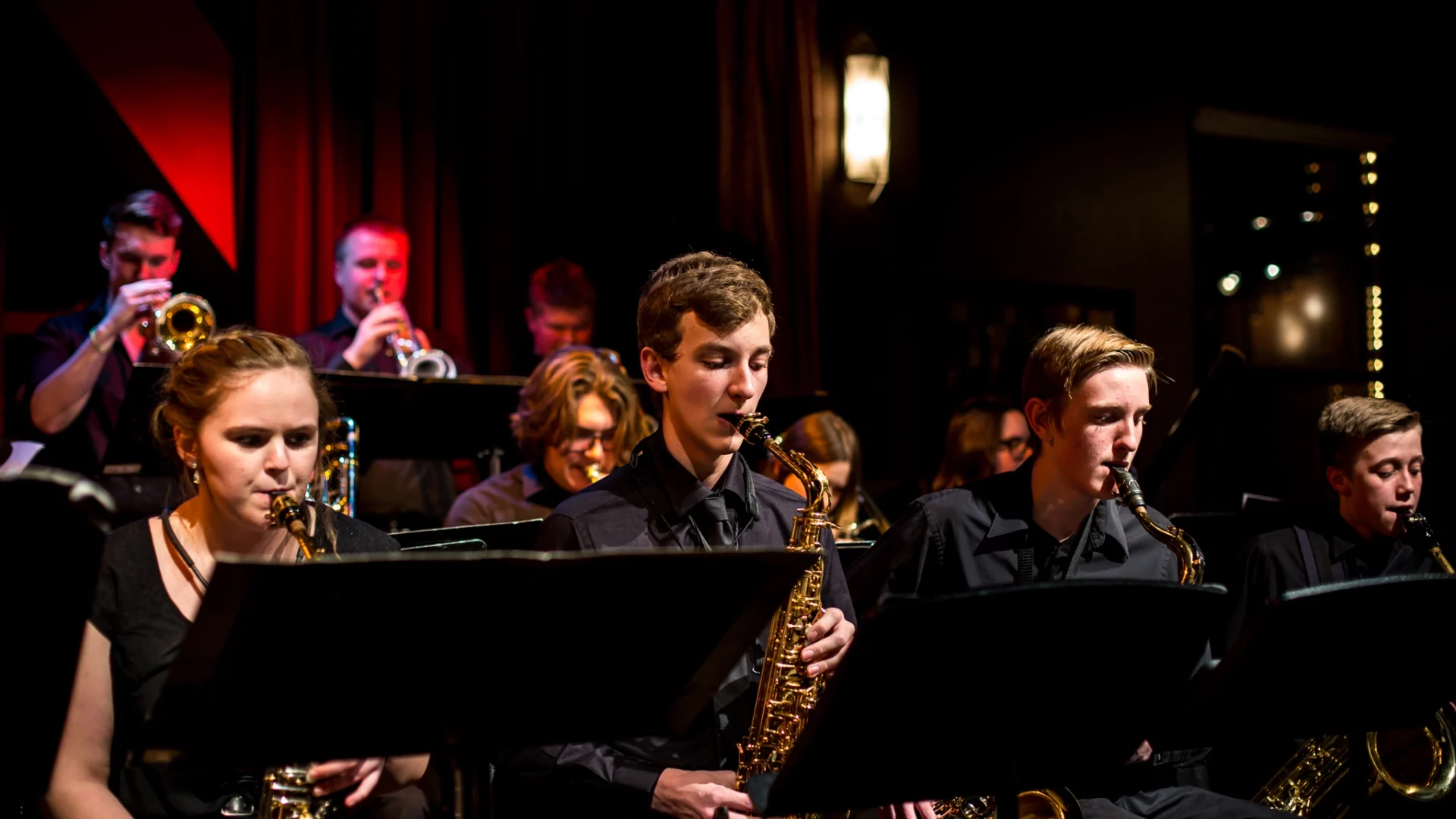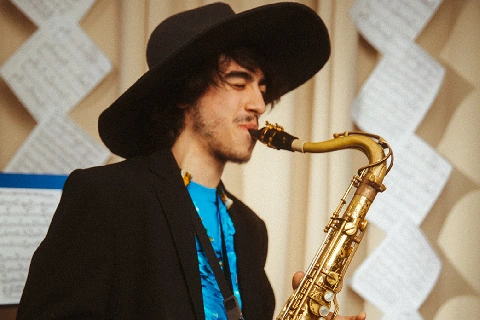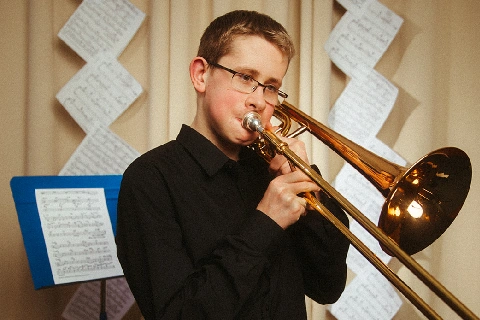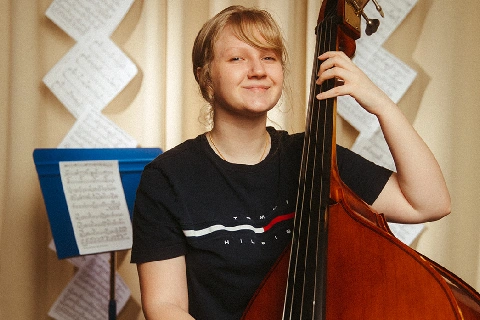The following are guidelines to help you have a successful, rewarding, experience in learning woodwind instruments such as clarinet, saxophone, and flute. We have arrived at these conclusions after many years of teaching hundreds of students.
1. Starting at the Right Age
Of course adults can start an instrument at any time. The real determination of success is the ability and willingness to commit to practicing. Although chances for fame may be slim, students in their 60s and even 70s can start an instrument and find it an enjoyable and rewarding experience. It can be a great way to have fun and stay sharp during the golden years.
For children, starting at the right age is key to the success of their lessons. The sooner the better isn’t always right for an optimal learning experience. Waiting until the child has reached the right age greatly improves the odds of success. For flute and clarinet lessons we recommend waiting until 8 years of age. For saxophone , since it is a larger instrument, we recommend waiting until at least 10 years of age.
2. Choosing the Right Instrument
Most students find it advantageous to rent a band instrument in the beginning. This is often the way to go since young students often have a change of heart when they realize that learning an instrument takes commitment and effort. Then the parent will not be stuck with an investment of several hundred dollars that they have to resell.
Most places that deal in rentals will have similar quality and price structures. You may be able to save on the monthly fee, if you commit to several months at a time, instead of just one. The quality of a rental instrument will not be “professional”, but it will nearly always be above average. No rental store can afford to rent instruments that cannot withstand the constant use of young players. If the student’s teacher has a specific brand or brands that they recommend, be sure to know that before renting.
Once you have your instrument, be sure to clean it after every use. If you find you are having problems, be sure to have a qualified repair person fix the instrument before it is too far gone to fix.
3. Performing Builds Confidence
You don’t have to be a great musician to perform. A school band program will have regular performances, but usually the students will not get to play a solo, or anything more challenging than the average kid his age. The experience of performing builds the student’s confidence and creates the desire to tackle even more challenging material. A good music school will include performance opportunities in the way of showcases, outdoor concerts, and other occasional events throughout the year.
4. For the Best Results, Choose Private Instruction
Group lessons work well for beginners to get exposure to an instrument, and to let parents know the desire level and practice habits of the child. Also band, orchestra, and seminar situations obviously require a group.
However, when actually learning how to play an instrument, private lessons are undeniably superior since the student has the undivided attention of the instructor. Also, the student can progress at his or her own pace, with extra time being spent on the individual student’s desires and weaknesses. The pressure of having to keep up with other students or the frustration of having to wait for other students who may not have even practiced their lesson can be very discouraging. With private lessons, progress is expedited and the student gets a customized lesson providing him with the knowledge he wants and needs.
5. Be Aware of the Quality of the Teacher
Of course there are many very good musicians that never studied their instrument formally. Some have learned by ear or picked up knowledge from friends along the way. But to be able to properly teach someone else, there should be a certain level of formal education that has been achieved. This way the student knows that the instructor has taken the time to train in the field that he is teaching. You probably wouldn’t want your child’s school to employ just anyone who says they know a lot about Math or English. You’d want some type of assurance that they have mastered their subject. It is just as important when learning music to have fully qualified teachers.
With children, knowing how to relate at their level and keep them motivated is just as important as being knowledgeable on the instrument. A good school will choose from a pool of many potential instructors, saving you the time and trouble of searching for a well qualified, professional teacher. In a music academy, the lessons are not just a hobby or sideline for the teacher but a career and responsibility, which are taken very seriously.
6. Learning in an Appropriate Setting
Not only is it necessary to have a qualified teacher, but also having an optimal learning environment is very important. With ½ to 1 full hour of lesson time per week, a professional school environment can produce better results since all of the time is focused on learning music and all of the tools and materials necessary are already in place. Although a traveling teacher sounds like a good idea for convenience sake, the reality is that there are distractions like phones, pets, or other kids which sometimes make concentrating difficult. It is also common during a lesson to have a situation come up where a specific problem needs to be addressed. With a complete library of musical materials and references readily available a teacher teaching at an academy can address the problem immediately rather than putting it off until the next week. Hearing peers who are at different levels of progress can also inspire students.
7. Purchase a Chromatic Tuner ASAP
Woodwinds need to be in tune whether you are playing solo or in a group. The easiest way to check to see if you are in tune is by using a chromatic electronic tuner. Other ways to check to see if you are in tune are:
- Tune to a tuning fork
- Tune to a pitch pipe
- Let your teacher tune your instrument.
8. Purchase a Metronome (or Drum Machine)
A metronome is just a device that makes a clicking sound. You set the speed of the click to the recommended speed or if there is no recommended speed, you set the speed to a point that you are able to play your song or exercise that you are practicing. A drum machine is really just a deluxe metronome with cooler sounds that costs more money. It can be used for the same purpose. If you have an electronic keyboard that has programmed rhythms, that can work instead of a metronome too.
9. Making Practice Easier
As in all things, improvement in music takes practice. One of the main problems with studying an instrument is the drudgery of practicing and the fight between students and parents that ensues. How to make practice easier:
- Time – Set the same time each day to practice so that it becomes a routine or habit. This is especially good for children but works for adults too. The earlier in the day that this happens the more likely the practice will not be put off until tomorrow.
- Repetition – This method works quite well when setting practice schedules for beginners. For a younger person 20 or 30 minutes may seem like an eternity. Therefore instead of a time frame we suggest repetition. For example do this song 4 times each day and this scale 5 times a day. Then the clock is not the enemy, as soon as the work gets done (correctly) the child is free.
- Rewards – Children respond well to rewards. As parents we can reward the child by saying when your practice is complete you can have x number of minutes on the PlayStation or other coveted activity. As teachers we sometimes will use stickers or more importantly, the praise of the teacher “Excellent job, keep it up” can be the best reward. For adults, usually a nice cup of java or other beverage will make the experience a little more rewarding.
In conclusion, playing a musical instrument should be an enjoyable experience, not a stress inducer. There will be times, usually at the end of the term for children, or a big project at work for adults, when the student will not able to practice. The goal is to learn at your own pace, not at the pace your friend or idol learned. As long as you know that you want to learn the instrument and that you are giving it your attention as much as is realistically possible, then you are being successful. The fun is the journey.





